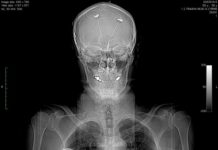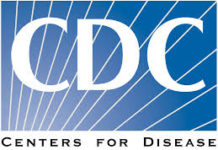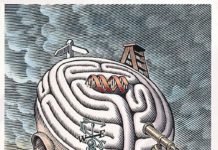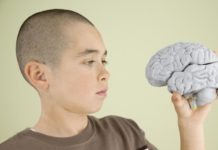New Book Deconstructs Ideology of Cognitive Therapy
CBT forwards a hyper-rational perspective of human suffering that complements a managerialist culture of efficiency and institutionalization in the Western world.
Psychotherapy is Less Effective and Less Accessible for Those in Poverty
A special issue explores the connection between poverty, mental health, and psychotherapy.
Adverse Effects: The Perils of Deep Brain Stimulation for Depression
Hundreds of people have been given remote control deep brain stimulation implants for psychiatric disorders such as depression, OCD and Tourette’s. Yet DBS specialists still have no clue about its mechanisms of action and research suggests its hefty health and safety risks far outweigh benefits.
Suicide Rates Rise While Antidepressant Use Climbs
Multiple media sources are reporting on new data from the CDC revealing a substantial increase in the suicide rate in the United States between 1999...
Antidepressants Do Not Prevent Suicides, May Increase Risk
When the CDC released data revealing an increasing suicide rate in the US, some experts, speaking to major media outlets, speculated that the increase...
Textbooks Provide Misleading Information on the Neurobiology of ADHD
When it comes to ADHD, some researchers suggest that medical textbooks provide inaccurate and misleading information.
Bad-Science Warning: The “Minnesota Study of Twins Reared Apart” (MISTRA)
The huge impact of the MISTRA, in addition to the harmful and regressive social and political policy implications that flow from it, necessitates a detailed analysis of the “science” behind the study’s major claims and conclusions. Here I offer a new critique of this famous and influential “separated twin study.”
Cognitive-Behavioral Therapy Halves the Risk of Repeated Suicide Attempts
A new study suggests that cognitive-behavioral therapy (CBT) may halve the likelihood of re-attempting suicide, for those who have attempted in the past.
Is an Ominous New Era of Diagnosing Psychosis by Biotype on the Horizon?
When former NIMH chief Dr. Thomas Insel speaks, people listen. Dr. Insel famously criticized the DSM a couple of years ago for its lack of reliability. He notably broke ranks with the APA by saying there were no bio-markers, blood tests, genetic tests or imaging tests that could verify or establish a DSM diagnosis of schizophrenia, bipolar or schizoaffective disorder. However in a new article he announces research that claims to have found bona-fide physiological markers that identify specific "biotypes" of psychosis. This system could, purportedly, identify a person as possessing a specific biotype of psychosis, instead of a DSM-category diagnosis.
New Study Casts Doubt on Efficacy of Ketamine for Depression
A new study, published this month in the Journal of Affective Disorders, investigated the effectiveness of weekly intravenous ketamine injections as a treatment for...
Psychiatry Defends Its Antipsychotics: A Case Study of Institutional Corruption
Jeffrey LIeberman and colleagues have published a paper in the American Journal of Psychiatry stating that there is no evidence that psychiatric drugs cause long-term harm, and that the evidence shows that these drugs provide a great benefit to patients. A close examination of their review reveals that it is a classic example of institutional corruption, which was meant to protect guild interests.
New Study Concludes that Antidepressants are “Largely Ineffective and Potentially Harmful”
A new study published in Frontiers in Psychiatry concludes that “antidepressants are largely ineffective and potentially harmful.”
NICE Guideline Update Acknowledges Severe Antidepressant Withdrawal
A new update to the NICE guideline for depression suggests providers discuss long-term, severe antidepressant withdrawal symptoms.
The Reckoning in Psychiatry Over Protracted Antidepressant Withdrawal
Medically-induced harm—affecting tens of millions of people worldwide—has taken the field decades to take seriously.
Brain Implants: Spinning the Trial Results to Protect the Product
The published report of the Broaden Trial of Deep Brain Stimulation for Depression whitewashed the results: although the efficacy results were negative, the investigators concluded that the therapy still showed "promise", and adverse events suffered by the patients were downplayed or attributed to the disease, and not the treatment. An in-depth investigation of how the trial results were spun, and interviews with patients that tell of harm done.
Mental Health Concerns Not “Brain Disorders,” Say Researchers
The latest issue of the journal Behavioral and Brain Sciences features several prominent researchers arguing that mental health concerns are not “brain disorders.”
Fighting for the Meaning of Madness: An Interview with Dr. John Read
Akansha Vaswani interviews Dr. John Read about the influences on his work and his research on madness, psychosis, and the mental health industry.
New Study Investigates Negative Side Effects of Therapy
Researchers find that nearly half of cognitive behavioral therapy (CBT) patients experience treatment side effects.
Researcher Acknowledges His Mistakes in Understanding Schizophrenia
Sir Robin Murray, a professor at the Institute of Psychiatry, Psychology, and Neuroscience in London, states that he ignored social factors that contribute to ‘schizophrenia’ for too long. He also reports that he neglected the negative effects antipsychotic medication has on the brain.
Antipsychotics Associated with High Risk of Death in Children
A new study has found that children and adolescents taking a high dose of antipsychotics are almost twice as likely to die of any cause than children on other types of medications.
Researchers Set the Record Straight on Controversial Zoloft Study
An issue of Lancet Psychiatry is devoted to clarifying the lack of efficacy for Zoloft (sertraline).
Long-term Usage of ADHD Drugs Linked to Growth Suppression
Findings suggest that treatment not only fails to reduce the severity of “ADHD” symptoms in adulthood but is associated with decreased height.
Antidepressant Use Leads to Worse Long Term Outcomes, Study Finds
Results from a 30-year prospective study demonstrated worse outcomes for people who took antidepressants, even after controlling for gender, education level, marriage, baseline severity, other affective disorders, suicidality, and family history of depression.
Mad Science, Psychiatric Coercion and the Therapeutic State: An Interview with Dr. David Cohen
MIA's Peter Simons interviews David Cohen, PhD, on his path to researching mental health, coercive practices, and discontinuation from psychiatric drugs.
Researchers Warn of “Brain Atrophy” in Children Prescribed Antipsychotics
Researchers discuss the evidence that antipsychotic medications may cause brain atrophy in children, whose brains are still developing.

































